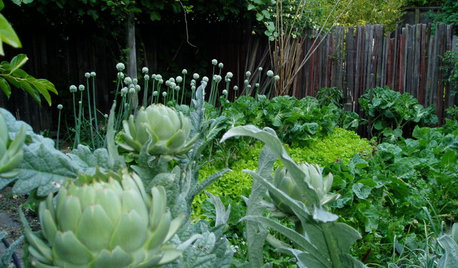Brand name of dehydrating organic herbicide?
iowariver
10 years ago
Related Stories

DECLUTTERINGFoolproof Ways to Declutter Your Kitchen
If you find yourself fumbling through cupboards to find what you’re looking for, it’s time to take action with these simple steps
Full Story
REGIONAL GARDEN GUIDESSoutheast Gardener's February Checklist
Pinch, prune and prepare this month — springtime's riches in the garden will be here before you know it
Full Story
LIFEThe Top 5 Ways to Save Water at Home
Get on the fast track to preserving a valuable resource and saving money too with these smart, effective strategies
Full Story
GARDENING GUIDESGet on a Composting Kick (Hello, Free Fertilizer!)
Quit shelling out for pricey substitutes that aren’t even as good. Here’s how to give your soil the best while lightening your trash load
Full Story
HEALTHY HOME18 Ways to Allergy-Proof Your Home
If you're itching to reduce allergy symptoms, this mini guide to reducing allergens around the house can help
Full Story
HEALTHY HOME12 Ways to Set Up Your Kitchen for Healthy Eating
Making smart food choices is easier when your kitchen is part of your support team
Full Story
FARM YOUR YARDHello, Honey: Beekeeping Anywhere for Fun, Food and Good Deeds
We need pollinators, and they increasingly need us too. Here, why and how to be a bee friend
Full Story
HEALTHY HOME6 Tips From a Nearly Zero-Waste Home
Lower your trash output and increase your quality of life with these ideas from a mom who did it to the max
Full Story
FRONT YARD IDEAS10 Ideas for a Front-Yard Edible Garden Your Neighbors Will Love
Choosing attractive, well-mannered plants and sharing the bounty will go a long way toward keeping the peace
Full Story
GREAT HOME PROJECTSHow to Replace Your Lawn With a Garden
New project for a new year: Lose the turfgrass for energy savings, wildlife friendliness and lower maintenance
Full Story






gardengal48 (PNW Z8/9)
Kimmsr
Related Professionals
Fillmore Landscape Architects & Landscape Designers · Manhattan Beach Landscape Architects & Landscape Designers · Lakeland Landscape Contractors · Woburn Landscape Contractors · Boca Raton Landscape Contractors · Chelmsford Landscape Contractors · Lorain Landscape Contractors · Nutley Landscape Contractors · Pikesville Landscape Contractors · Royal Oak Landscape Contractors · Southbury Landscape Contractors · Streamwood Landscape Contractors · Irvington Landscape Contractors · Natick Decks, Patios & Outdoor Enclosures · Vandalia Decks, Patios & Outdoor Enclosureslazy_gardens
Kimmsr
floral_uk z.8/9 SW UK
lazy_gardens
curtis